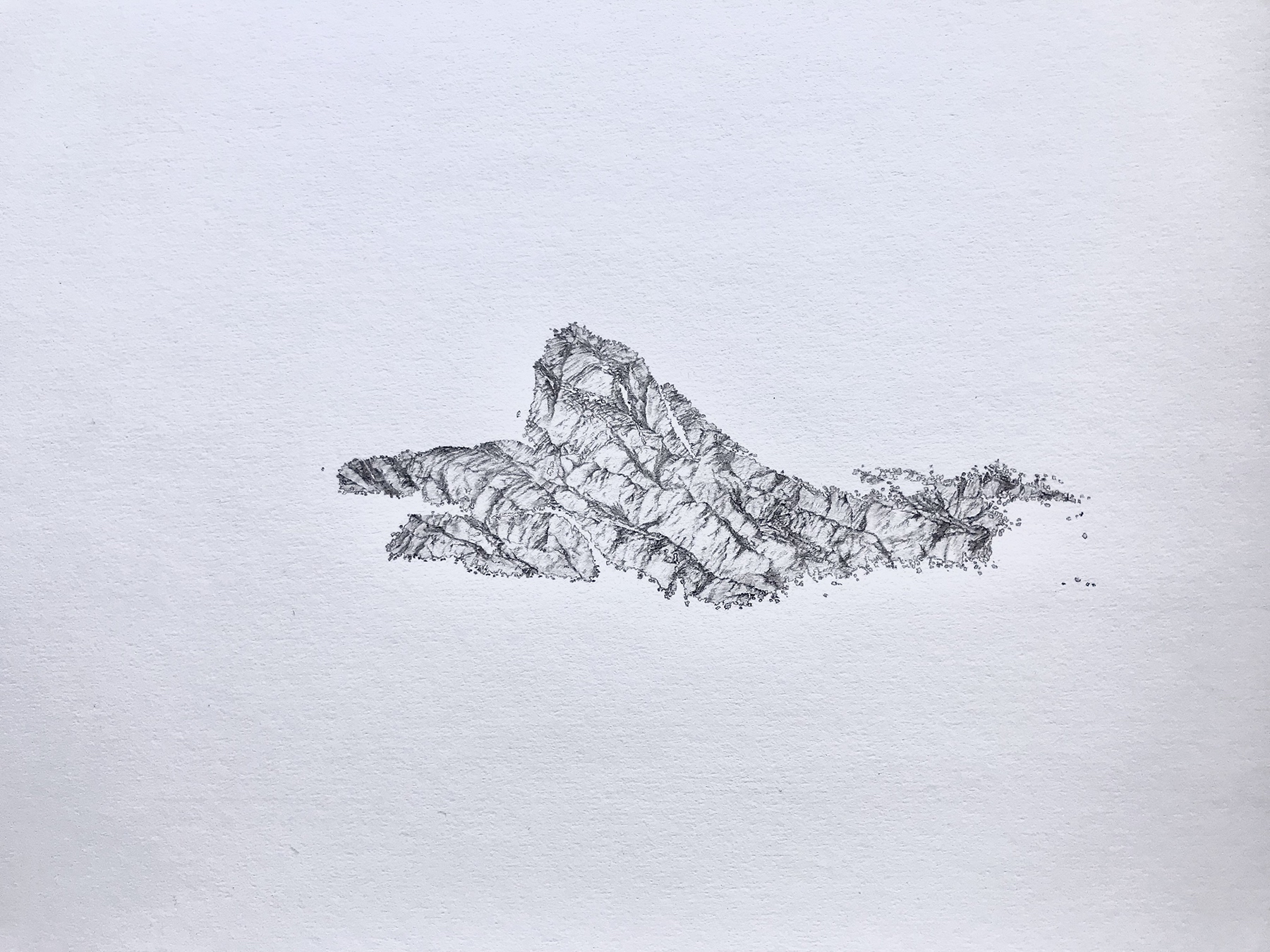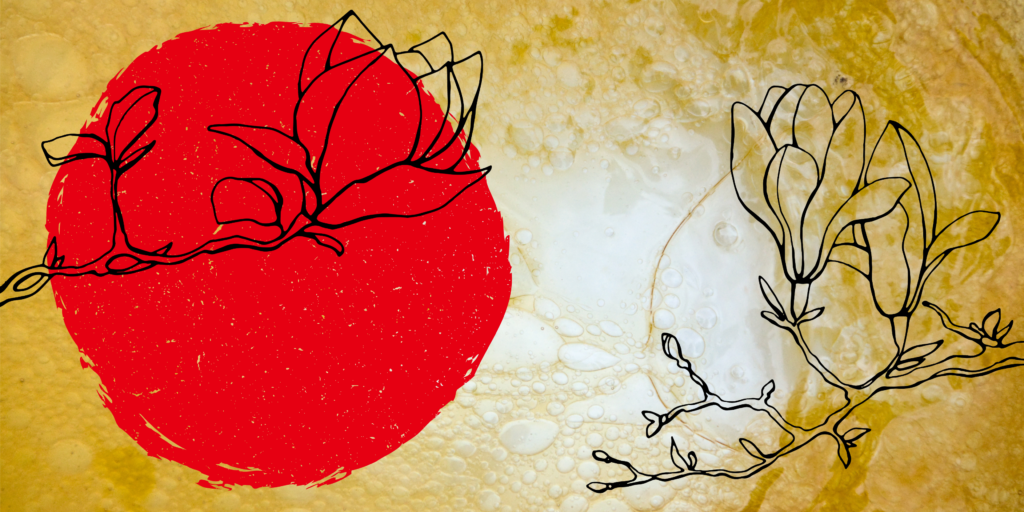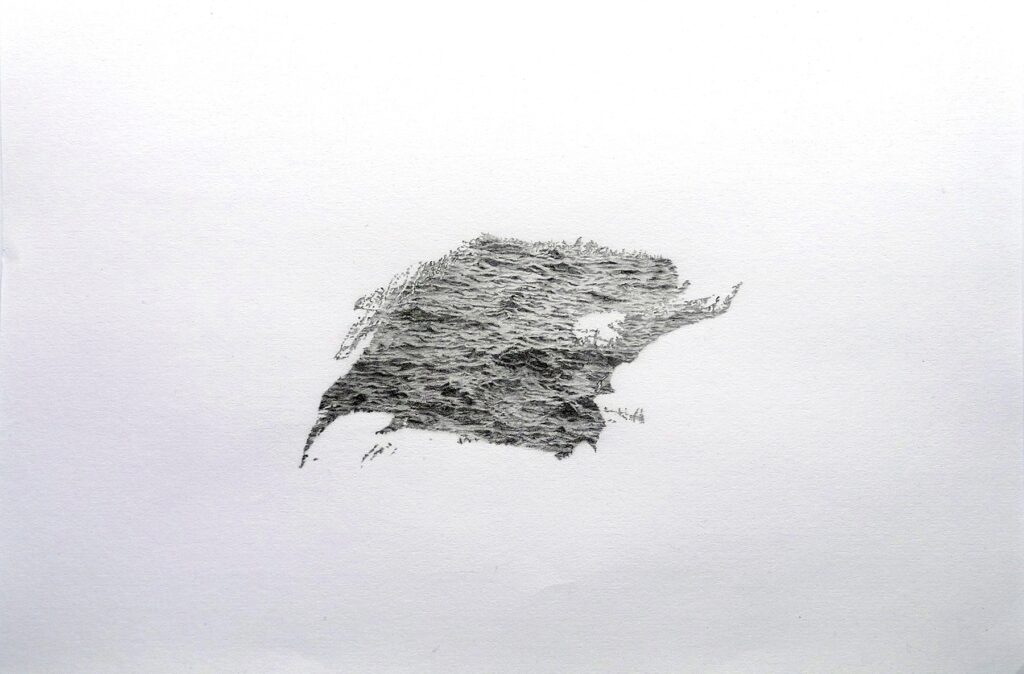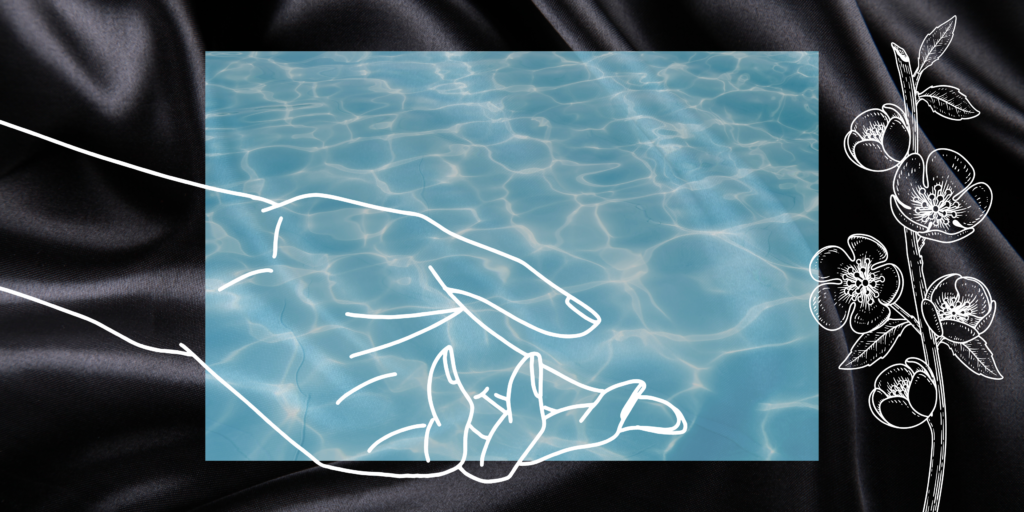How has climate change changed the way we write poetry?

This piece is part of the Climate notebook, which features art by Katrina Bello.
In 2015, I was preparing to teach Wallace Stevens’s canonical “Thirteen Ways of Looking at a Blackbird” in my undergraduate Introduction to Poetry course at the University of Hawaiʻi, Mānoa. I was taught this poem when I was in high school, and I have probably read and taught it many times (more than thirteen!) over the past twenty years. As most students of poetry know, the poem is generally about seeing the world from multiple perspectives, thus deepening our knowledge and intimacy with the world. No matter how many times you read the poem and look at the blackbird, there is another important lesson: the poem never changes. Same words, same order. Once you became familiar with its syntax, each stanza became predictable upon rereading.
Taking a break from lesson planning, I looked away from those blackbirds and towards my Facebook feed. Among endless status updates was an article about melting glaciers: climate change clickbait.
Having grown up on the small Pacific Island of Guam, glaciers were not part of my experience or memory. While the ocean is usually cast as a vast alien space, for me the ocean was always already present; it was the glacier that felt like an alien geography. However, my awareness of glaciers grew in 2014, when leaders from around the world gathered in New York City for the Climate Summit, a momentous event that brought global attention to climate change. I remember witnessing on television the massive People’s Climate March through Manhattan, as well as the passionate speeches by politicians, environmentalists, activists, and others calling for change.
After this event, glaciers started appearing everywhere: in the media, art, documentaries. Everyone was looking at (and chasing) glaciers. Naomi Klein wrote about glaciers in her book This Changes Everything: Capitalism vs. the Climate, which revealed to many readers the historical, political, and scientific context for climate change.
As I learned more about climate change, I started to notice changes everywhere. Changing temperatures, changing weather patterns, changing scientific data, changing political discourses. In the literary realm, the changing climate changed my poetry as I started writing more about climate change. Change, the word itself, appeared everywhere, as it is doing right now in this essay.
While this change should be expected since poets have always responded to current events, I did not expect climate change to also change how I read poetry.
After reading the article on melting glaciers, I returned to my lesson plan on Stevens. The first section of his poem reads:
Among twenty snowy mountains,
The only moving thing
Was the eye of the blackbird.
However, when I read it, the words changed in my imagination. The blackbird became a glacier (perhaps the “snowy mountains” also influenced this tectonic shift). I stopped reading the poem and wrote these lines in my notebook:
Among starving polar bears
The only moving thing
Was the edge of a glacier.
I continued changing each section of Stevens’s poem, imitating his syntax and prosody while replacing blackbirds with glaciers. The process was mainly intuitive as I attempted to look at glaciers in different ways, to process what I had learned about them. By the end, I felt I had looked beyond just the tip of the glacier to see its submerged body, to understand its deeper significance.
After I finished my poem, I (unoriginally) entitled it “Thirteen Ways of Looking at a Glacier.” Then I wrote, as many others who have imitated Stevens have done: “After Wallace Stevens.” Something felt off about that preposition, though. This was different from writing after or inspired by. I had reused the form (or container) of Stevens’s poem while changing its content (or filling it with new content). In a sense, I “recycled.”
The next lesson plan I prepared was for Pablo Neruda’s “Sonnet XVII,” published in his 1959 collection, Cien sonetos de amor (100 Love Sonnets). The natural world in these sonnets is figured as a metaphor for the body, desire, the erotic, love, and sex. Rereading Neruda in the context of climate change, the poems changed in my imagination. The sensual mountains became clear-cut and mined, the sinuous rivers polluted, and the bee dropped dead, unable to pollinate the once blossoming flowers. Can desire still bloom in contaminated places?
I recite aloud the beginning of sonnet XVII, as translated by Mark Eisner:
I don’t love you as if you were a rose of salt, topaz
or arrow of carnations that propagate fire:
I love you as one loves certain obscure things,
secretly, between the shadow and the soul.
Then I take out my notebook and recycle the lines:
I don’t love you as if you were rare earth metals,
conflict diamonds, or reserves of crude oil that cause
war. I love you as one loves the most vulnerable
species: urgently, between the habitat and its loss.
Neruda’s poem continues to figure love in terms of plants and flowers, whereas my poem figures love through seed vaults and pesticides. His poem ends in these memorable lines:
so close that your hand upon my chest is mine,
so close that your eyes close with me dreams.
In my final couplet, those lines become:
so close that your emissions of carbon are mine,
so close that your sea rises with my heat.
I titled my sonnet “Love in a Time of Climate Change.” In some ways, my poem asks: How has climate change changed the way we write about love? How has it changed the way we love each other and the environment?
The positive aspect of how climate change was changing my reading: I was writing new poems! The negative aspect: it was taking way too long to finish my lesson plans! So I turned to the simplest, most straightforward poem on my syllabus: William Carlos Williams’s “This Is Just to Say,” his viral poem about plums. Short, memorable, teachable. Truly, if there was one poem that was impossible to change, it was this small, imagist classic. I thought by prepping to teach this poem I could regain pedagogical momentum and quickly finish the lesson.
Wrong. The iconic plums, too, had changed. And not to GMO fruit, as one might guess, but to something much more sinister and gross: impossible burgers. Many studies have shown that eating meat, operating slaughterhouses and factory farms, producing crops to feed the animals, and even the methane emissions from livestock (cow farts) all contribute to climate change. Enter the fake meat, artificial flesh, plant-based movement, which claims to be a “green” way to eat “meat.” Or, as one headline read: “How Vegan Burgers Can Help Save the Planet” (yet their claims to having a lower carbon footprint are debatable). In the near future, I imagined, fake meats will be as common as plums once were.
I opened my journal and recycled Williams’s poem:
I have eaten
the “meats”
that were in
the laband which
you were probably
growing
for “burgers”forgive me
they were impossibleTM
so heme
and so eco
The sweetness and coldness of the plums also changed to a heme-ness and eco-ness of the cell-cultured meat (“heme” is a molecule that, they say, makes meat taste like meat). Which is just to say: climate change is even changing our food (and our literary representations of food).
My recycling of Williams brings into question his famous tenet: “No ideas but in things.” What if the thing (meat) is no longer the thing itself (fake meat)? Has climate change made imagist poems impossibleTM?
I recycled many other texts, including Allen Ginsberg’s “America,” Maggie Smith’s “Good Bones,” Dr. Seuss’s One Fish, Two Fish, Red Fish, Blue Fish, Irving Berlin’s “White Christmas,” and the lullaby “Hush, Little Baby.” All these poems were published in my collection of eco-poetry Habitat Threshold (Omnidawn, 2020).
Let us recycle the plot of the essay and end where we began. The final section of Stevens’s poems reads:
It was evening all afternoon.
It was snowing
And it was going to snow.
The blackbird sat
In the cedar-limbs.
My recycling concludes:
It was summer all winter.
It was melting
And it was going to melt.
The last glacier fits
in our warm hands.
Revisiting and reflecting upon these works reminds me that climate change has deeply changed how I read and write, both in terms of content and form. While recycling is often critiqued for its futility in addressing the larger issues of fossil fuel emissions, recycling these poems helps me look at our changing world in a new way. It helps me to see the damage caused by our wasteful hands and to become more intimate with glaciers (or oil or rare earth metals or meat). It helps me act and inspires me to change.



